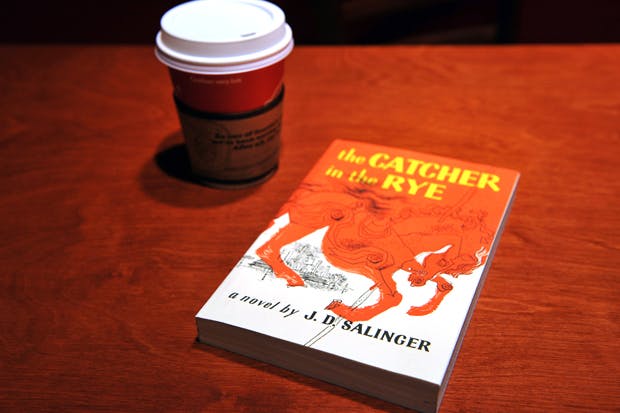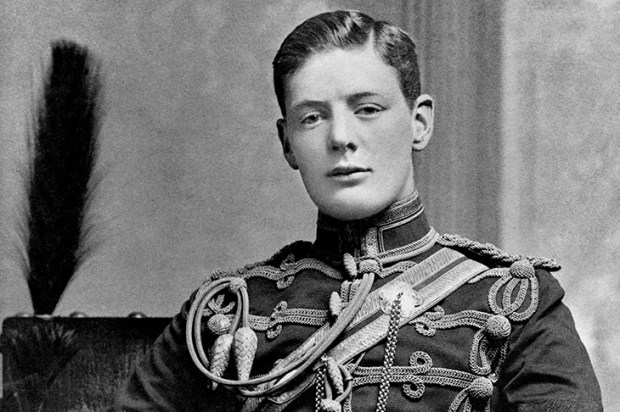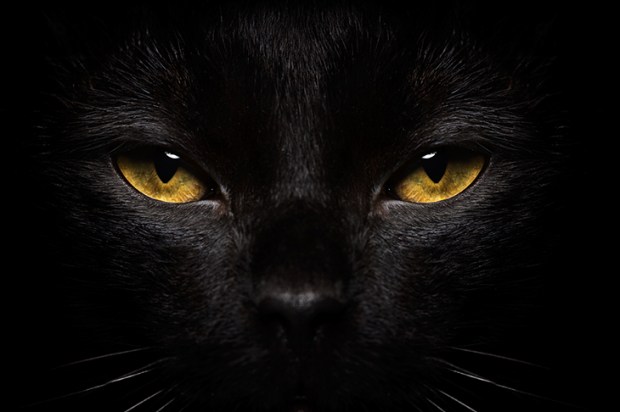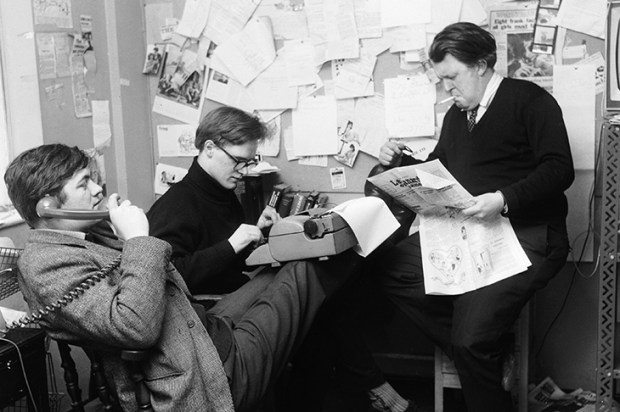This week’s column is dedicated to all those of you who have never read Catcher in the Rye and who, what’s more, are unhealthily proud of the fact. It’s OK: I understand. I was one of you myself till a couple of weeks ago when, at Boy’s insistence, I wearily set aside some of my valuable beach time to plough through this hideously overrated and tiresome ‘classic’.
Why the reluctance? Well, for the obvious reason that Catcher in the Rye — like To Kill a Mockingbird or On the Road — is one of those books you just don’t need to have read because everyone else has done it for you. Including all the thick people who have only ever finished about three books. Or that was how it was when I was at school. The top English sets would study something proper by, say, Austen or Dickens. And the slackers would be given the soft option of doing an American novella, like Catcher or Of Mice and Men.
Besides which, of course, it’s so culturally ubiquitous you know exactly what it’s about already: Holden Caulfield, a moody teenager, tells you his thoughts — and inspires at least three generations of serial killers. Oh, and you get bonus points for knowing that he wears a distinctive red hunting hat, that the reclusive J.D. Salinger wrote little thereafter and that the first line includes a dismissive reference to ‘all that David Copperfield kind of crap’.
Except the actual book is nothing like you think it’s going to be. For a start, it’s set in New York, not the country. (‘Rye’: you’d pictured the dungareed hero, lying sulkily and adolescently in fields of tall grass, plotting how to murder someone, right?) And Holden is a really sweet kid. Rich and privately educated (another thing you wouldn’t expect for an everyman yoof hero), he goofs around the city for 24 hours playing at being a grown-up (largely unsuccessful attempts at whoring and drinking), but reassuring us how lovely and well-adjusted he is underneath because he’s so nice to his kid sister and those nuns.
I remember experiencing a similar shock on reading War and Peace. And On the Road, for that matter, which I tackled — again at Boy’s insistence — after I’d finished Catcher. Why had I resisted for so long? Because of all those tossers — Bob Dylan foremost among them — who insist that, yes, of course, it’s one of those essential books that you have to read because it will change your life.
Jesus! The presumption of the man! If there’s one thing I’m absolutely never going to do it’s have my literary tastes dictated by some croaky 1960s folk singer (not one of whose albums I’ve ever listened to in full, not ever, seriously, is that bad of me?) whose politics are way left of mine. It would be like consulting Rio Ferdinand on what museums to visit while you’re in Madrid, or asking Keith Lemon for his advice on the most challenging hunt country.
Then I read the book. Oh dear. It’s a bloody masterpiece, it really is. Life–changing, you might even say. Obviously, there is much to dislike about it, especially if you leave it till you’re middle-aged: the disgusting youthful energy and optimism; the way it romantically glosses over the ravages of drug or booze addiction, even to the point of looking on fondly as the blond one-year-old child of Old Bull (aka William S. Burroughs) runs naked in the yard while his parents dedicate their lives to benzedrine and smack.
But it’s brilliant nonetheless and definitely a formative book I wish I’d read at Boy’s age, rather than moping around wistfully as I did with the lovely but doomed Le Grand Meaulnes. Still, that’s what children are for, isn’t it: avoiding all the mistakes you’ve made so that they can make different ones instead?
Naturally, all this has got me thinking: which of the other grotesquely overrated books I’ve refused to read and films I’ve refused to see and albums I’ve refused to hear (Television’s Marquee Moon; The Band’s The Band; Miles Davis’s Kind of Blue) will turn out to surprise and delight me as much as Catcher and On the Road did? And also: how much of the collective critical wisdom out there derives from bluffers too proud to admit they’re actually un-acquainted with the works on which they insist on venturing an opinion nonetheless?
If my experiences are anything to go by, quite a lot. But then, it’s my job: there just aren’t enough hours in the day to read, watch or listen to all the stuff you’re expected to be an expert on so instead you synthesise other critics’ opinions and form a judgment based on theirs.
The problem is that sometimes critics you trust get it wrong. For example the Guardian’s great Peter Bradshaw was unnecessarily down, I thought, on a culty film I adored the other day called Drive, whose tough, taciturn, broodingly handsome, ultraviolent hero I believe may have been loosely based on me. And sometimes not just one critic but the entire consensus can get it wrong, perhaps because of some silly intellectual fad of the day or because no one quite dares say that the Emperor is wearing no clothes or because they’re all just dorks.
Sgt Pepper, for example. If you’d read a Q or NME or Rolling Stone survey of about 20 years ago, you’d invariably find it listed among the top five greatest albums of all time, which it’s just not. ‘A Day in the Life’, ‘Lucy in the Sky with Diamonds’, ‘She’s Leaving Home’: yes. ‘When I’m 64’; ‘Within You Without You’; ‘Lovely Rita’?: I hardly think so. Or as Keith Richards put it recently, it’s ‘a mishmash of rubbish’.
I’m still not going to read To Kill a Mockingbird, though. Whatever Taylor Swift says.
Got something to add? Join the discussion and comment below.
Get 10 issues for just $10
Subscribe to The Spectator Australia today for the next 10 magazine issues, plus full online access, for just $10.















Comments
Don't miss out
Join the conversation with other Spectator Australia readers. Subscribe to leave a comment.
SUBSCRIBEAlready a subscriber? Log in